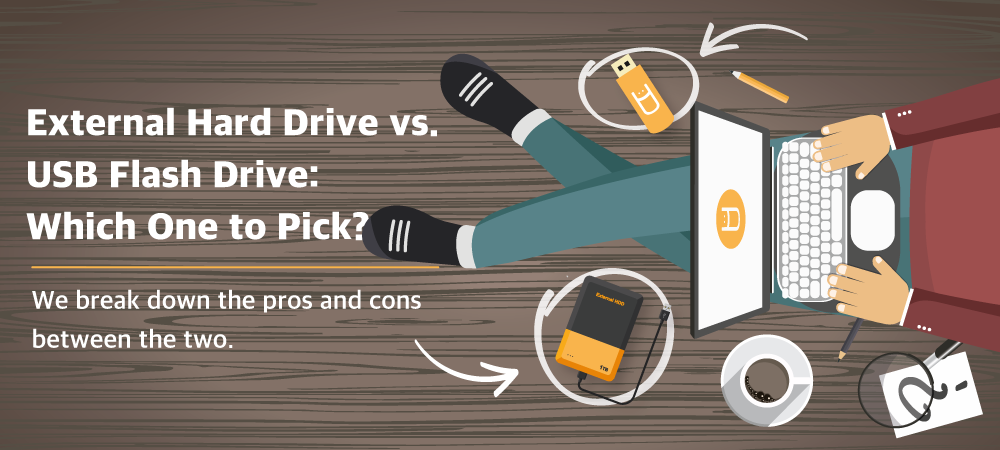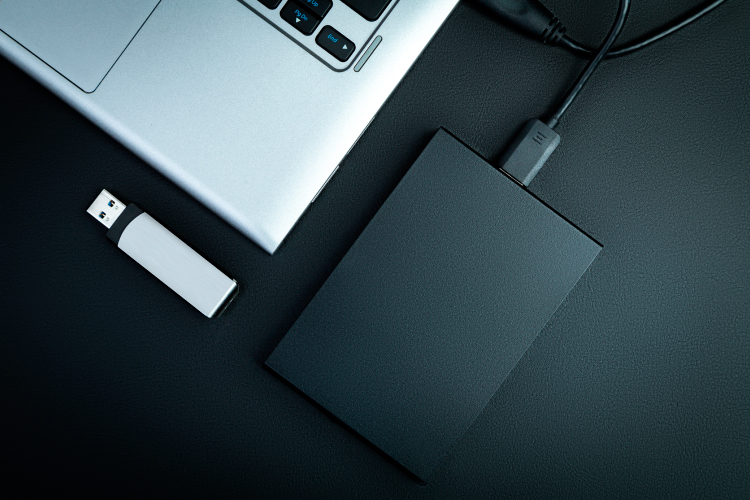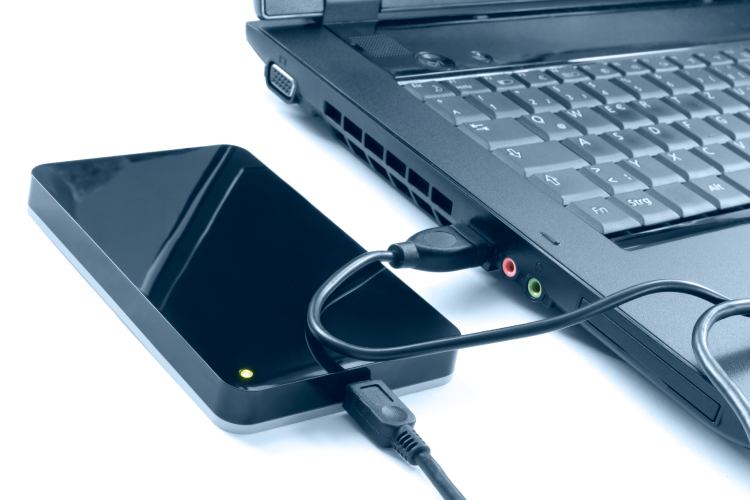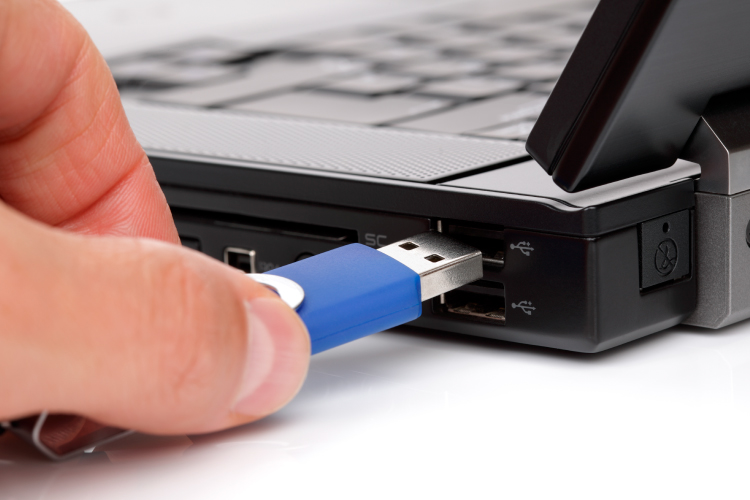
External Hard Drive vs. USB Flash Drive: Which One to Pick?
We all have to store our stuff somewhere. For physical goods, that might mean renting a storage unit or clearing out some space in the garage. When it comes to data, storage options are a little different.
Of course, the answer today is often "Put it in the cloud!" And while cloud storage does have its perks, many people like to keep their most important stuff on a physical drive. (Hello, private crypto keys!)
That leaves a face-off between the two main physical storage options: external hard drives vs. USB flash drives. Let's take a quick look at how each option stacks up.

What Is an External Hard Drive?
An external hard drive is exactly what it sounds like: a self-contained hard drive that you attach to your device. It's similar to the hard drive that's probably already in your laptop or desktop. The only difference is that it attaches via a USB port rather than being integrated into your machine.
Most external hard drives you'll find today are solid state drives (SSDs). These drives use solid state, non-volatile flash memory to offer huge amounts of reliable storage. They're commonly available in many different sizes, from basic 256 GB drives to multi-terabyte monsters.
Hard disk drive (HDD) externals are also still in use for some applications. This is an older technology that uses magnetic readers to store data on a spinning disc. These drives give you a massive amount of space for the money, but they're somewhat fragile and not portable at all.
What Is a Flash Drive?
A USB flash drive is a compact flash memory storage device that attaches to your computer via a USB port. Flash drives are inexpensive, reliable and widely available. They come in a vast range of shapes and sizes, and they're simple enough that almost anyone can use them. Many organizations consider them a standard office supply.
The compact size of flash drives also offers tons of customization opportunities. Some businesses even have fully custom flash drives fabricated in their own designs! Options like business USB cards also make great marketing and promotional materials, and they're easily available through USB Memory Direct.

External Hard Drive vs. USB Flash Drive: Making Your Choice
When the (micro)chips are down, do external hard drives or USB flash drives perform better? That depends entirely on what you need from your data storage.
1. Portability
External SSDs can't compare with the incredible portability of USB flash drives. Put it on your keychain, in your pocket, in your backpack, in your laptop bag - wherever! Anywhere you can go, your USB drive can probably go, too.
That said, most common external SSDs are still quite portable. The average external SSD is smaller and slimmer than a paperback novel. HDDs, meanwhile, are bulky, fragile and generally not road-worthy.
2. Storage Space
You might expect external hard drives to have a clear advantage on storage space. Many SSDs on the market today offer 1 TB of space or more, so that's true up to a point. HDDs are now used exclusively for high capacity storage, so they're often packing 8 TB or more.
However, you might be surprised by just how roomy flash drive sizes have gotten! USB Memory Direct offers flash drives in sizes all the way up to 256 GB. So, while an external might be the choice for a massive HD video library, a flash drive can hold its own if necessary. And if you just need quick storage for smaller files, an external is probably overkill.
3. Speed and Performance
HDDs are the slowest option due to the need for a mechanical stylus to read a spinning disc platter. SSDs, by comparison, are generally the fastest choice. Although USB drives and SSDs use the same basic technology, SSDs tend to offer slightly faster read and write speeds.
On the other hand, with USB 3.0 flash drives now widely available, the speed gap between flash drives and SSDs is closing. If speed and portability are equal concerns, a USB 3.0 flash drive could be a great choice.
4. Reliability
Although flash drives can go bad, flash memory in general is known for excellent reliability, thanks to the lack of moving parts. Both SSDs and USB drives are extremely well protected against mechanical shocks. The same can't be said about HDDs, which are widely considered to be the most fragile storage medium.
5. Price
External SSDs are typically the most expensive storage option. Their premium price point reflects their combination of high storage capacity and reliability. Magnetic HDDs are actually less expensive on a price-per-GB basis. That makes them a popular option for data centers and other applications that don't require on-the-go performance.
Flash drives are a perfect compromise between portability and price. You'll get the advantages of flash memory, without the premium price point of external SSDs. USB Memory Direct offers great deals on bulk USB drives to ensure you've always got plenty of memory on hand.

Looking for great deals on custom flash drives? Get started with a free quote from USB Memory Direct today! Plus, for more on the key choices of the USB device world, see our guide to USB-A vs. USB-C.